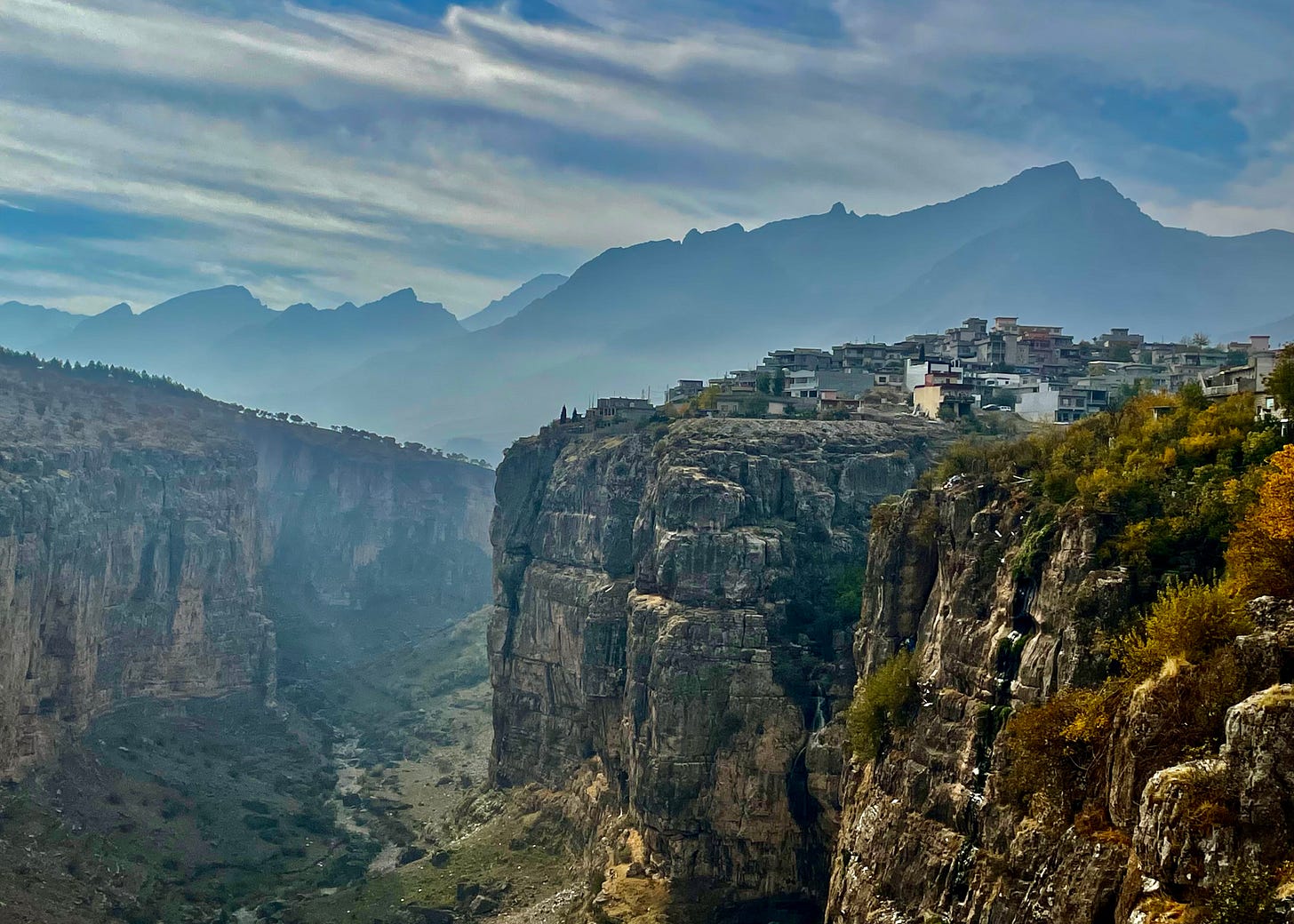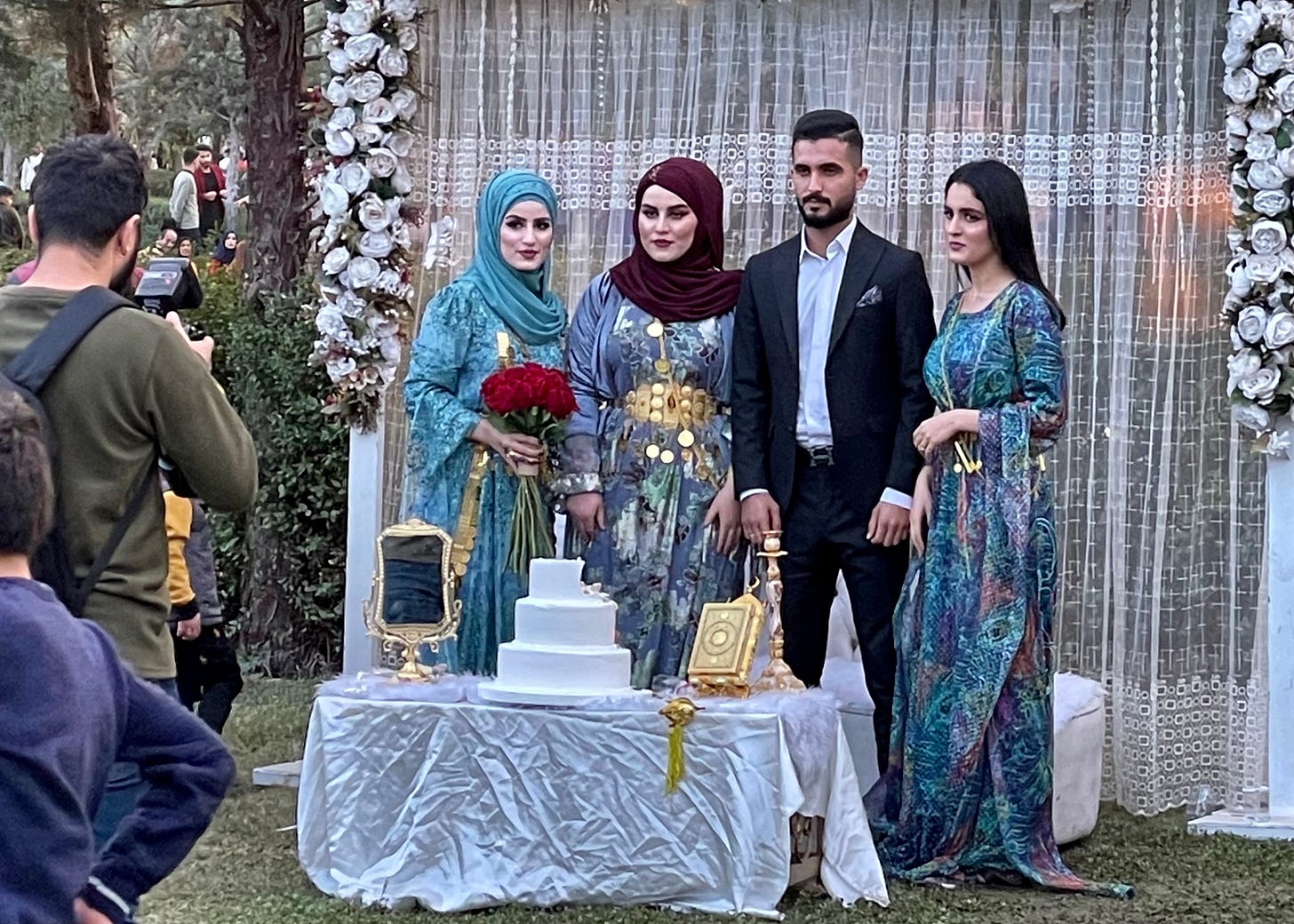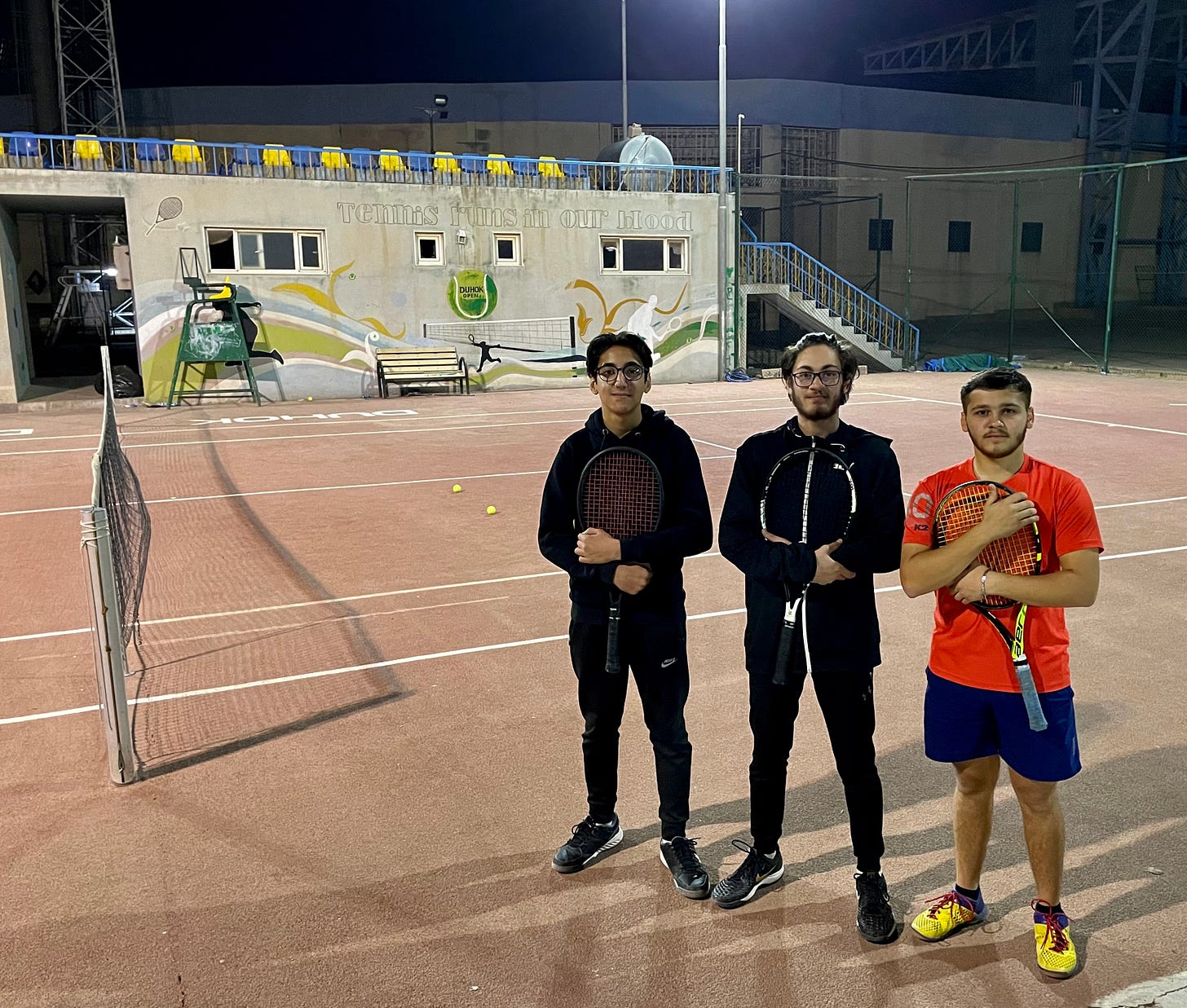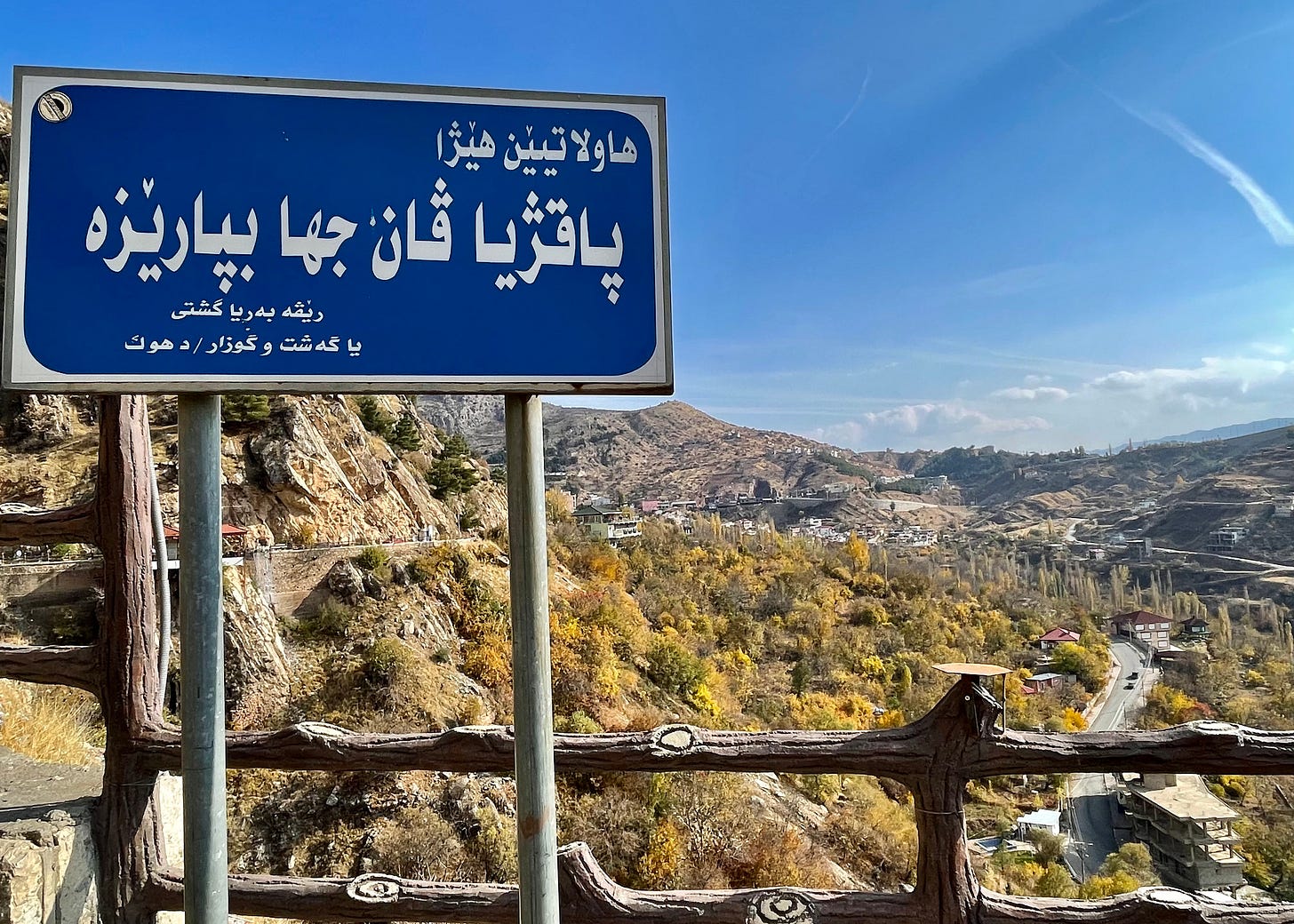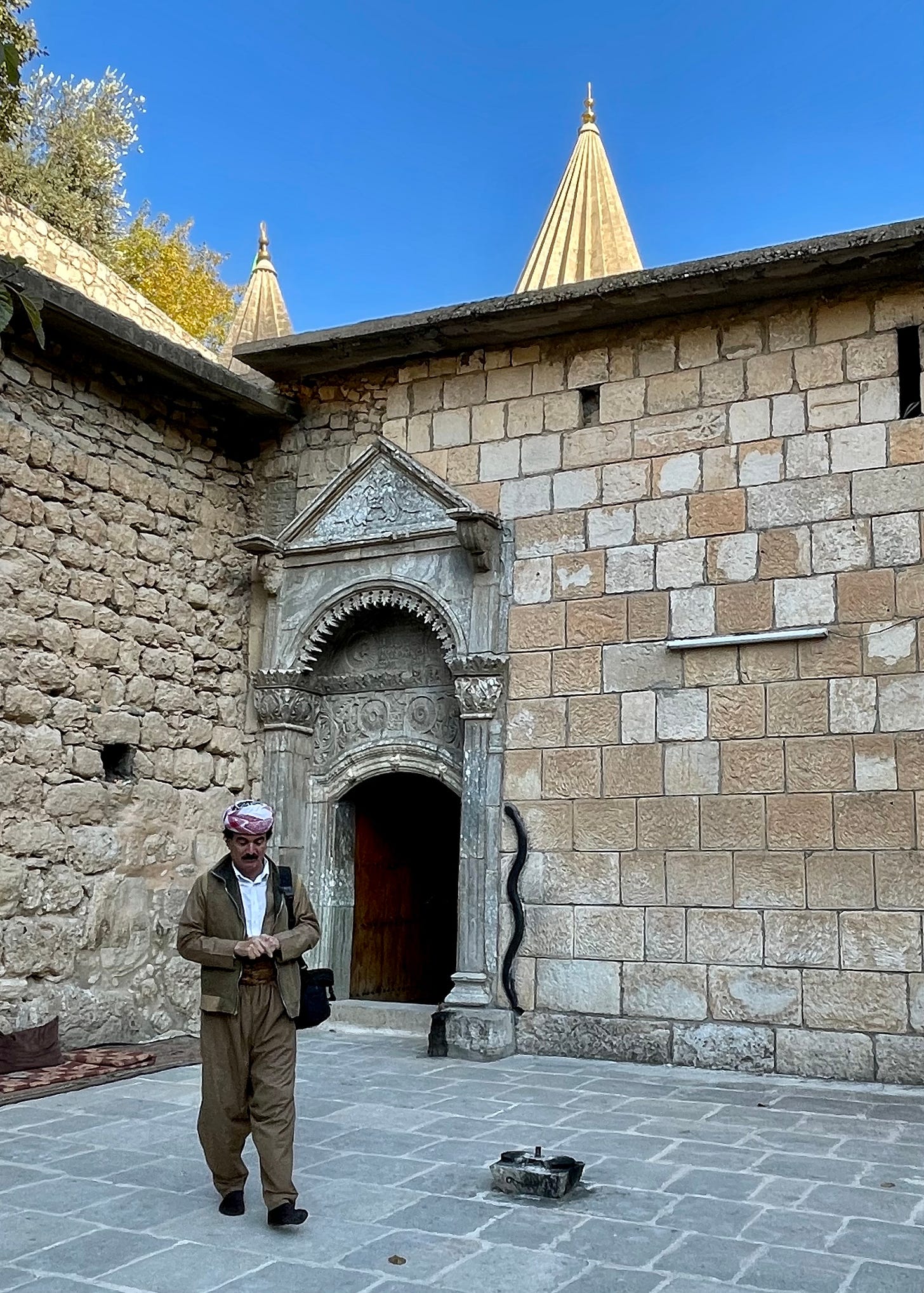Mar Behnam Monastery overlooking the Nineveh Plains in Northern Iraq near the border of Turkey.
Dearest friends and fellow contrymen,
I’m trying to spin this Letter from London into something actually “from London,” when the truth is that I have been half a world away for the last ten days in Iraq and on the borders of Turkey and Iran. I’m also trying to say something profound about my trip — a turn of the phrase that will move you to look differently at the world. Again, drawing blanks. I am seldom full of wisdom.
Every time I tell someone I am going to one of these places, however — Iraq, Jordan, Lebanon, etc. — I receive caution and concern. What about the bomb that blew up in Baghdad? Or the news about all the migrants who drowned crossing the English Channel? Or the latest political uprising? As they said in Iraq after Saddam was executed and the country was split over and over again, “better the devil you know.” The Middle East is trying to escape strife; it’s not having much luck.
A ridge overlooking the ancient fortress town of Amedi, Iraq.
But my first point: the news is the news because something out of the ordinary happened. Events make television or the Internet as they are important for diplomats, or there is some strife in a part of the country, or a government needed some public relations.
Second point: civilization happens everywhere. It happens in villages, in refugee camps, in the mountains above the Nineveh Plains. Just as those refugees were drowning thanks to the UK’s draconian laws, couples were celebrating their marriages in Erbil’s Sami Abdulrahman Park. On the day Western countries were unleashing Black Friday sales, Under-18 boys football teams from around the Middle East were competing in the second Western Asia Football Federation championship. And as an American teenager was executing innocent high school kids in Michigan, in Dohuk, Iraq — just miles from Mosul — boys were practicing for the national tennis championships later that week in Baghdad.
A proud bride and groom making memories in Erbil’s Sami Abdulrahman Park.
Jordan takes on Iraq during the Western Asian Football Federation club match on 26 November.
Three “brothers” practice late into the night at the Dohuk Sports Club preparing for a tournament in Baghdad the following week.
This photo essay is intended to give friends an idea that life does go on; people rebuild — they are reconstructing Iraq; and they are working to change things, even if the politics don’t support them. The human spirit is strong. It’s never too late to send skis, soccer, school books, racquets and every other material good that advances life, instead of guns and bombs.
Overlooking the mountains near Northern Kurdistan.
A Yazidi guide walks near the temple in Lalish, where thousands of Yazidis, a Zoroastrian religious minority, were murdered during Da’esh’s reign.
Trekking in one of the mountains on Thanksgiving Day.
Minara Park where some of Iraq’s philosophers and leaders are honored in the foreground of an ancient tower.
Guide Omer Chomani (left) who runs Visit Iraqi Kurdistan (VI Kurdistan) and leads mountaineering, skiing and trekking exhibitions, www.visitiraqikurdistan.com.
Ever yours,
Adrian
English or American Rebuttal
If you or a friend want to debate any thought in this newsletter, please leave a comment!
Housekeeping:
If you enjoy this newsletter — and the photographs — I ask that you subscribe. Your small donation goes a long way toward my goal of what the English call “permanent leave to remain” and the Americans call “to stay in the country.”





